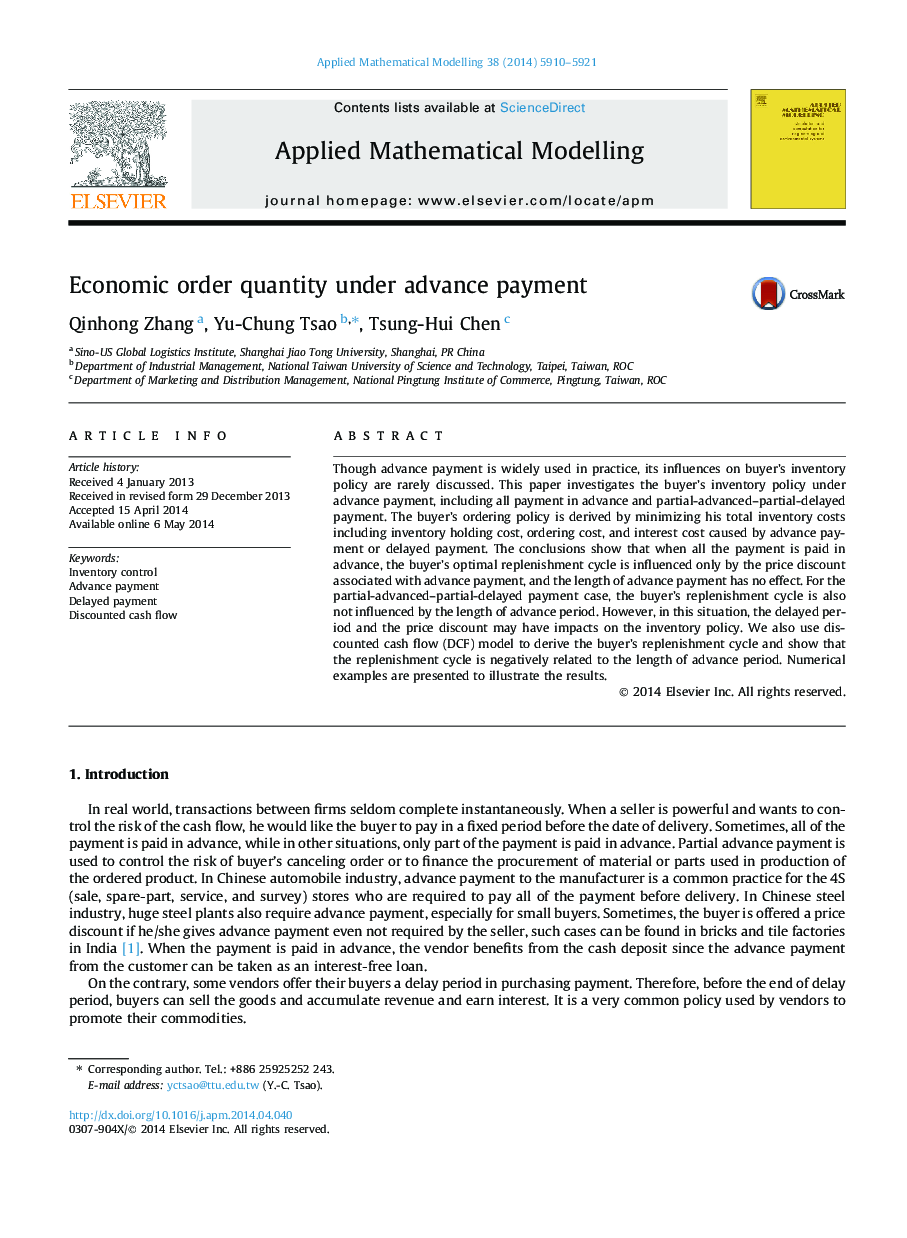| Article ID | Journal | Published Year | Pages | File Type |
|---|---|---|---|---|
| 1703539 | Applied Mathematical Modelling | 2014 | 12 Pages |
Though advance payment is widely used in practice, its influences on buyer’s inventory policy are rarely discussed. This paper investigates the buyer’s inventory policy under advance payment, including all payment in advance and partial-advanced–partial-delayed payment. The buyer’s ordering policy is derived by minimizing his total inventory costs including inventory holding cost, ordering cost, and interest cost caused by advance payment or delayed payment. The conclusions show that when all the payment is paid in advance, the buyer’s optimal replenishment cycle is influenced only by the price discount associated with advance payment, and the length of advance payment has no effect. For the partial-advanced–partial-delayed payment case, the buyer’s replenishment cycle is also not influenced by the length of advance period. However, in this situation, the delayed period and the price discount may have impacts on the inventory policy. We also use discounted cash flow (DCF) model to derive the buyer’s replenishment cycle and show that the replenishment cycle is negatively related to the length of advance period. Numerical examples are presented to illustrate the results.
